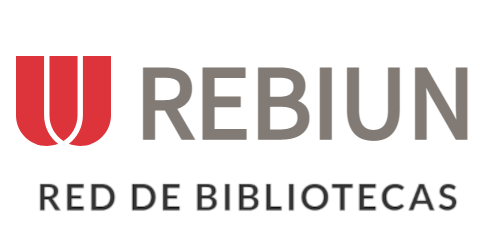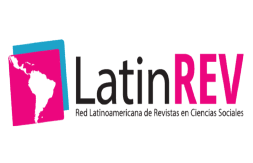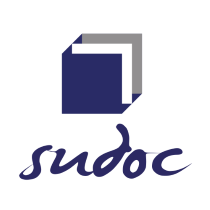Segunda generación de los servicios de las Tecnologías de la Información y la Comunicación (TIC) en el aula universitaria
Palabras clave:
Sociedad de la Información, Sociedad del Conocimiento, TIC, Educación universitariaResumen
El propósito de esta investigación consiste en analizar el uso de las TIC por parte de los profesores universitarios y sus conocimientos sobre los servicios de la segunda generación de estas tecnologías. Los participantes del estudio son 93 docentes de ambos sexos, de la Universidad Tecnológica Intercontinental, provenientes de las carreras de Informática, Empresariales, Psicología y Derecho de las sedes situadas en el Departamento Central. Se trató de una investigación cuantitativa, con un diseño no experimental descriptivo y con la aplicación una encuesta a través del cuestionario, con reactivos con respuestas pre-configuradas, organizadas en escalas. En general, los docentes usan las PC y los smartphones (en este orden) para acceder a los servicios de las TIC mayormente de primera generación: el correo electrónico, los buscadores, los mensajes multimedia y los navegadores. Los servicios de segunda generación se usan menos, excepto las redes sociales, lo cual hacen con fines con fines académicos más que por otros motivos. Con menos frecuencia se usan los servicios del chats, blogs, comunidades virtuales de información especializada y las wikis, quedando con los
Descargas
Citas
Aibar, E. (2016). Ciencia y Wikipedia: Del conflicto a la simbiosis. Revista Científica Internacional Arandu UTIC, 3(1), 10–35.
Arroyo Vázquez, N. (2014). ¿Web 2.0? ¿Web social? ¿Qué es eso? E-prints in Library and Information Science. http://eprints.rclis.org/10566/1/EYB_NA07.pdf
Bell, D. (1973). The coming of post-industrial society: A venture in social forecasting. Basic Books.
Beniger, J. R. (1986). The control revolution: Technological and economic origins of the information society. Harvard University Press.
Berners-Lee, T. (2009, marzo 13). Tim Berners-Lee: The next web of open, linked data [Video]. YouTube. http://www.youtube.com/watch?v=OM6XIICm_qo
Blood, R. (2000). Weblogs: A history and perspective. http://www.rebeccablood.net/essays/weblog_history.html
Burch, S. (2006). Sociedad de la información / Sociedad del conocimiento. http://vecam.org/archives/article518.html
Castelfranchi, C. (2007). Six critical remarks on science and the construction of the knowledge society. Journal of Science Communication, 6(4), 1–3.
Castells, M. (2000a). La era de la información: Economía, sociedad y cultura. Vol. I: La sociedad red (2.ª ed.). Siglo Veintiuno Editores.
Castells, M. (2000c). Internet y la sociedad red. Conferencia de presentación del Programa de Doctorado sobre la Sociedad de la Información y el Conocimiento. http://instituto162.com.ar/wp-content/uploads/2014/04/INTERNET-Y-LA-SOCIEDAD-RED-Castells.pdf
Hardt, M., & Negri, A. (2005). War and democracy in the age of empire. Penguin Books.
Harvey, D. (1989). The condition of postmodernity: An enquiry into the origins of cultural change. Blackwell.
Harvey, P. L. (2010). Applying social systems thinking and community informatics thinking in education. En K. E. Rudestam & J. Schoenholtz-Read (Eds.), Handbook of online learning (pp. 91–128). Sage Publications.
Hilbert, M. (2015, agosto 12). Digital technology and social change [Video]. YouTube. https://www.youtube.com/watch?v=xR4sQ3f6tW8&list=PLtjBSCvWCU3rNm46D3R85efM0hrzjuAIg
Innerarity, D. (2012). Power and knowledge: The politics of the knowledge society. European Journal of Social Theory, 16(1), 3–16. https://doi.org/10.1177/1368431012459698
Jenkins, H., Purushotma, R., Weigel, M., Clinton, K., & Robison, K. J. (2005). Confronting the challenges of participatory culture: Media education for the 21st century. MIT Press.
Kirkpatric, D., & Roth, D. (2005, enero 10). Why there’s no escaping the bloge. Fortune. https://web.archive.org/web/20050101004415/http://www.fortune.com/fortune/technology/articles/0,15114,1011763-1,00.html
Maui Island Guide. (s. f.). Hawaiian–English. http://www.mauimapp.com/moolelo/hwnwdshw.htm
Mitchell, S. (2008, julio). Easy wiki hosting: Scott Hanselman’s blog and snagging screens. MSDN Magazine.
Siemens, G. (2010). Conociendo el conocimiento. http://www.nodosele.com/editorial
Tello Leal, E. (2008). Las tecnologías de la información y comunicaciones (TIC) y la brecha digital: Su impacto en la sociedad de México. Revista de Universidad y Sociedad del Conocimiento, 4(2), 1–8.
Välimaa, J., & Hoffman, D. (2008). Knowledge society discourse and higher education. Higher Education, 56(3), 265–285. https://doi.org/10.1007/s10734-008-9123-7
Van Weert, T. J. (2006). Education of the twenty-first century: New professionalism in lifelong learning, knowledge development and knowledge sharing. Education and Information Technologies, 11(3), 217–237. https://doi.org/10.1007/s10639-006-9018-0
Wasserman, S., & Faust, K. (1994). Social network analysis: Methods and applications. Cambridge University Press.
Webster, F. (2006). Theories of the information society (3.ª ed.). Routledge.
Publicado
Cómo citar
Número
Sección
Licencia
Derechos de autor 2021 Arandu UTIC

Esta obra está bajo una licencia internacional Creative Commons Atribución 4.0.





















